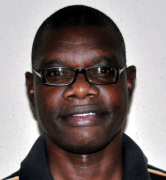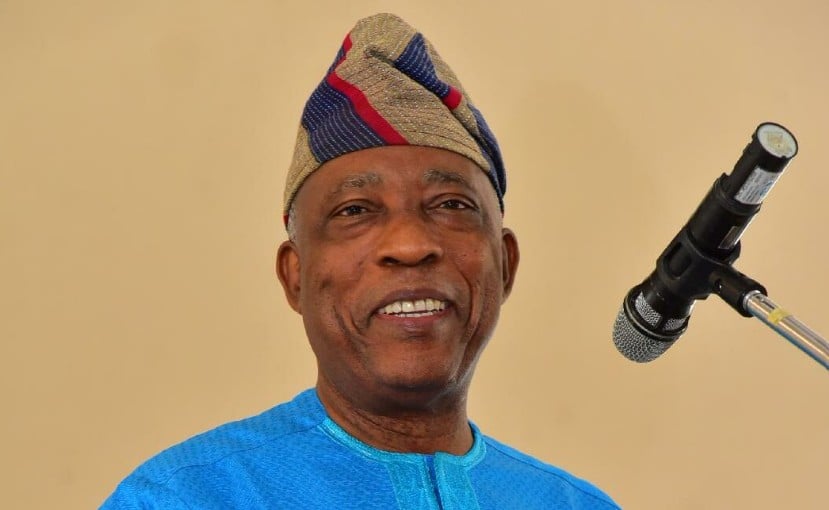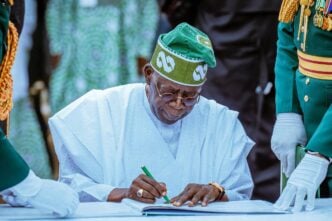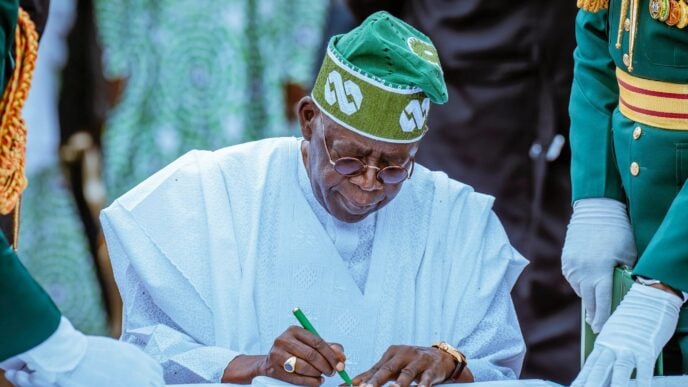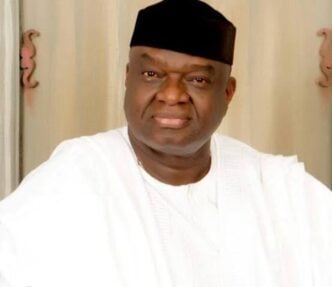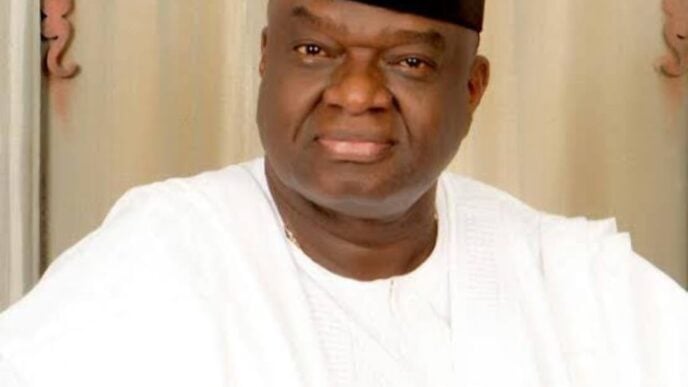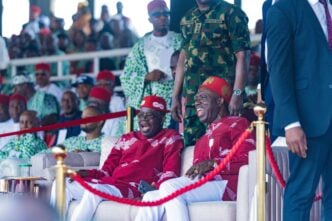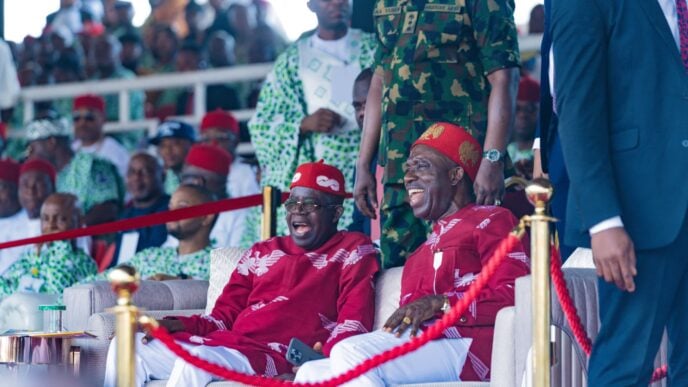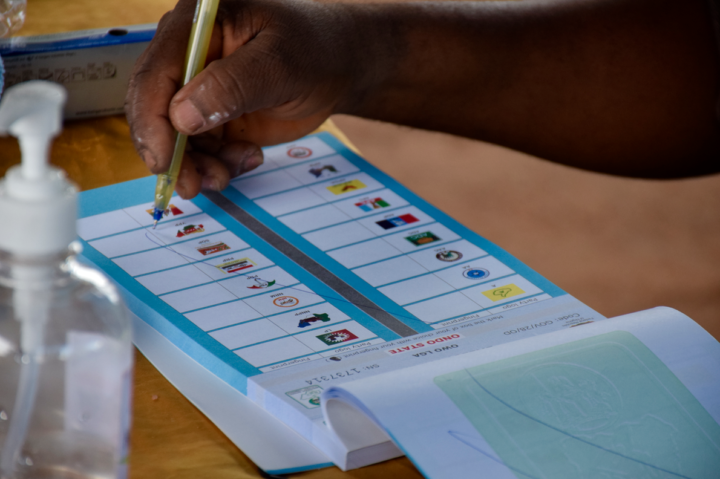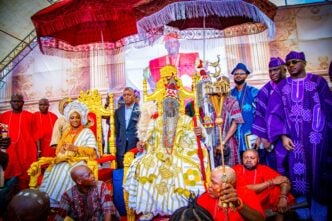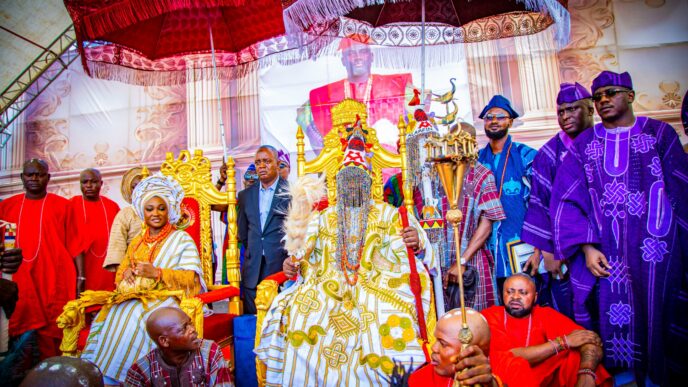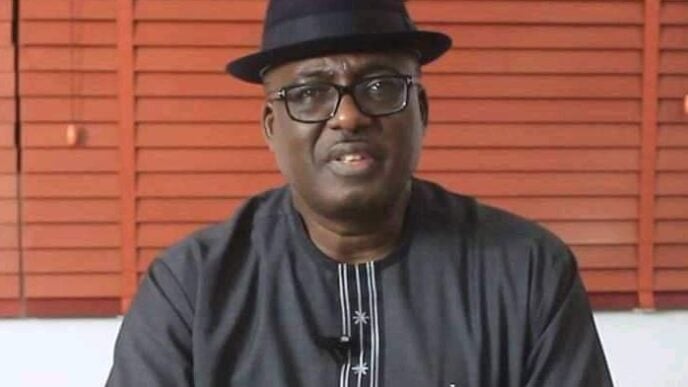One’s very first eye-to-eye encounter with Dare Babarinsa was on the mainly commercial Oregun road, Lagos, inside a featureless two-storey building where Newswatch magazine, the rave of that moment in Nigeria’s journalism landscape, had hired two floors for its office in the mid-80s. One had the rare privilege of a brief internship at the celebrated news outlet at the time. Dele Giwa, prime mover and editor-in-chief, was still around then.
The meeting venue was unintendedly the library, a cramped room on the ground floor with a compact cluster of books, magazines, journals, newspapers, files and a variety of reading materials neatly arranged in rows of towering shelves.
Beneath the crowded shelves at one corner, was a tableful of books and magazines behind which Nyaknno Osso, the magazine’s peerless chief librarian and archivist – one of Nigeria’s best in that field – typically sat. Idowu Awoyinfa, Osso’s able hand in the library, had his table at the other end. Together, they delighted every user of the space with their thoroughness and sense of duty.
Because of its inspiring atmosphere of creativity, the library became a choice spot for one for the entire duration of the internship, so much so that one spent most of the time there scouring papers and books for interesting articles, and gleaning the gist of stories making the rounds.
Advertisement
Babarinsa, whipping around in a sky-blue Volkswagen Beetle car, would often arrive the office and, with a bag firmly on one hand and an easy gait that reminded of Fred Sanford (Red Foxx), the fictional character in Sandford and Son, the widely viewed American sitcom of the early 80s, would saunter into nowhere else but the library. He would throw around greetings in his usual calm manner, then grab a sheaf of bound newspapers and start flipping through the pages. After a while, he would turn to the magazines and do the same thing. Many times, he did this standing on his feet before exiting to the newsroom with one or two papers.
Although one somehow happened to always be there in the library as Babarinsa carried out what seemed like a ritual, we never had any relationship beyond one’s regular extension of courtesy to a far superior professional already working his way to becoming a guru in the job.
In Newswatch, he had become the perfect newsman, a carryover from his remarkable exploits in the National Concord where he exhibited fine reportorial skills with consummate elegance – a feat that won him the hearts of many, including his Giwa & Co. who had no choice but to invite him as part of the magazine’s foundation staff.
Advertisement
It wasn’t long before colleagues in the magazine began to call him “The Historian.” Although one has yet to ask him the originator of the engaging moniker, one’s hunch points to Giwa considering his flair and appetite for invention. It was undoubtedly a sobriquet Babarinsa rightly earned and lived with, given his aptitude for not only infusing most of his reports with historical contexts, but also captivating colleagues with specific events – political or social – in different epochs of global history.
Indeed, Newswatch of that period was a formidable redoubt of gods of the pen – vibrant, unyielding and uncompromising. And Babarinsa was a shining light in that pantheon.
That’s as far as the first encounter with him went. The next meeting happened at the point when Nosa Igiebor, himself an irrepressible reporter, led Babarinsa and a handful of other colleagues in Newswatch to found TELL, another weekly news magazine on Acme Road, Ikeja.
One had moved on after the internship in Newswatch, flirted with a magazine and a few newspapers including the Sunday Times as a correspondent yet couldn’t find the desired fulfilment. Then one ran into Clement Babarinsa, a lawyer and Babarinsa’s cousin who had an office somewhere in Ebute-Meta. We lived very close to each other in Shomolu, another suburb of Lagos, and became friends who met to talk almost every other night.
Advertisement
He put in a good word on one’s behalf and said to go see his cousin with my application letter. This was sometime in February 1991, just as TELL was about taking off. That was the first time of meeting Babarinsa again since Newswatch, not in any library this time but in his office and standing before him to have a conversation. Now executive editor of the new magazine, Babarinsa mentioned that Brother Clement had spoken to him about me and he collected the application, and that seemed like the end of the matter.
After about two months, no interview invite. Nothing. No word of assurance from him after every follow-up visit, except to say, “Keep checking.” One had applied as a senior writer. What to do then? TELL was publishing opinion articles weekly.
One sat down one day and did a piece titled, “Living in Fear,” which highlighted the dread that had stricken the populace under Babangida’s atrocious regime, and dropped it in Babarinsa’s office. The article was published. But no word from him.
Two weeks later, one went to see him and the first thing he said was: “Nosa wants to see you. Go and see him.” Nosa is the editor-in-chief. As soon as one stepped into his office, he asked: “Are you Godwin?” “Yes sir,” came the response. Then he said, “We won’t give you senior writer. We will give you staff writer. Go and start.” An that was it.
Advertisement
From then on, Babarinsa became everything for one in TELL. He became not just the boss to whom one reported most times, but also one’s guide, teacher and mentor in journalism. Many of the things one learnt in the profession flowed from Babarinsa’s rich experience. He was always there, with no airs, to put one through.
Even with the passage of time and his feet at the door of old age, he has maintained his ruggedness as a journalist, writer, essayist, humanist and of course an active proponent of the Yoruba cause through his frontline involvement in the activities of the foremost Yoruba organization, Afenifere.
Advertisement
But it is in his writings that Babarinsa’s earthly exertions stand well acclaimed, significantly by no less a grand personality than the Nobel laureate, Professor Wole Soyinka. In his book of essays, Interventions Vol. 1 (pgs. 98/110), Soyinka praised Babarinsa’s book on the bitter, bloody struggle for political power in the Second Republic, House Of War, a title which the literary guru expertly corrected to read House At War, saying, “Indeed, this well-researched, meticulously documented and instructive book held me in thrall, and I found myself swept up by the events it so ably described.”
Going further, Soyinka said beyond “proof of residency, tax certificates, and proof of solvency and lack of a criminal record,” the first question to a prospective candidate in an election in Nigeria should be whether he or she had read Babarinsa’s House At War and, second, what lessons the book offers. The response, he said, would determine whether the candidate is fit or not to contest elections. Babarinsa isn’t likely to get a more forceful approval of his work than this.
Advertisement
On Friday May 9, 2025, this darling son of Okemesi Ekiti, son of a past Sajuku, a prestigious chieftaincy title in the town (No wonder some friends call him Sajuku), clocked 70. The rustic and serene town bubbled with celebrations of the platinum jubilee of their cherished son. Friends from far and near graced the occasion to rejoice with Oluwadare Babarinsa and family.
But as if not to be undone, it was an occasion the celebrant preceded with the launch of two fresh products of his craft: Eat Now, Pay Later and Nigeria And The Pascal Question.
Advertisement
More power to your pen, sir. Can’t thank you enough, boss. Many happy returns!
May you live longer in perfect health.
Onyeacholem [email protected] writes from Abuja
Views expressed by contributors are strictly personal and not of TheCable.
